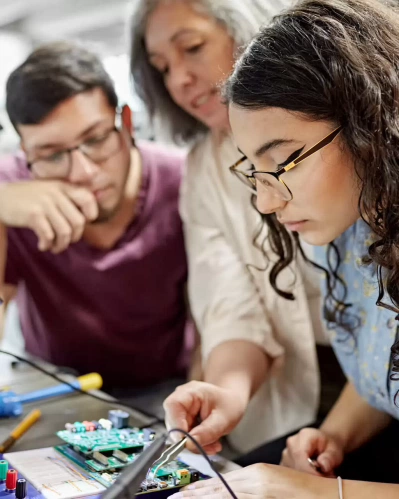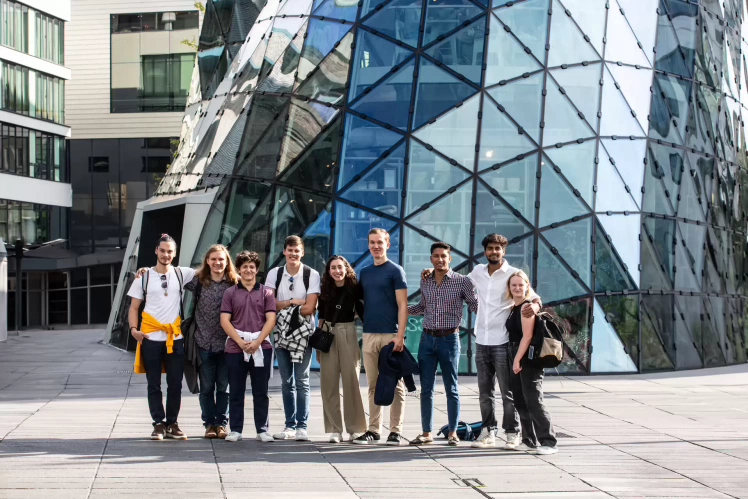
Programmes

Living in the Netherlands
- Information for parents/carers
- Our campuses
- Studying in the Netherlands
- Visa and insurance
- Holiday calendar

May 15
Open days and more
Ready to lead in high-tech system design? Join the part-time Master System Design programme at Fontys University of Applied Science in Eindhoven. Learn how a complete system with multiple components works and how to design and optimize it effectively. Deepen your expertise in architecture, mechanics, and control engineering while continuing your professional career, designing systems that make a global impact.
This programme offers direct entry for students with an Engineering Bachelor's degree.
The rise of intelligent systems demands innovative engineers.
Find solutions for real-world challenges in Brainport, the Netherlands' high-tech design hub.

Develop competencies for an advanced position with Fontys MSc Master System Design, mastering technical and leadership skills while working. Specialise in high-tech systems, overseeing system architecture and innovation. Benefit from coaching to strengthen your identity in an evolving environment.
As a T-shaped professional, you'll combine deep expertise with broad business knowledge.
Learn system architecture, modeling, and control for multidisciplinary projects.
Enhance your career opportunities by gaining valuable insights while you work.
The Master System Design teaches you about system architecture, mechanics, and AI through flexible modules, self-study, and projects that fit around your job. In the third year, you’ll complete your final project and thesis, all while continuing your professional work.

While studying, you’ll develop multidisciplinary modules when you work in a large company, or lead product development in smaller firms. Career opportunities abound in high-tech engineering firms, developing systems like satellites, microscopes, and factory automation.
Make sure to check all admission requirements.
Discover our campus: beautiful and well-equipped study spaces, trendy coffee corners, and pleasant campus squares. Everything for your growth and enjoyment!
Use our tuition fees indicator and understand the monthly living expenses for international students in the Netherlands, ranging from EUR 900 to EUR 1,100.
Calculate tuition fees
Starting a study in a foreign country is exciting. Make sure to start your search for accommodation on time.
September
English
3 year(s)
Master
Part-time
Eindhoven